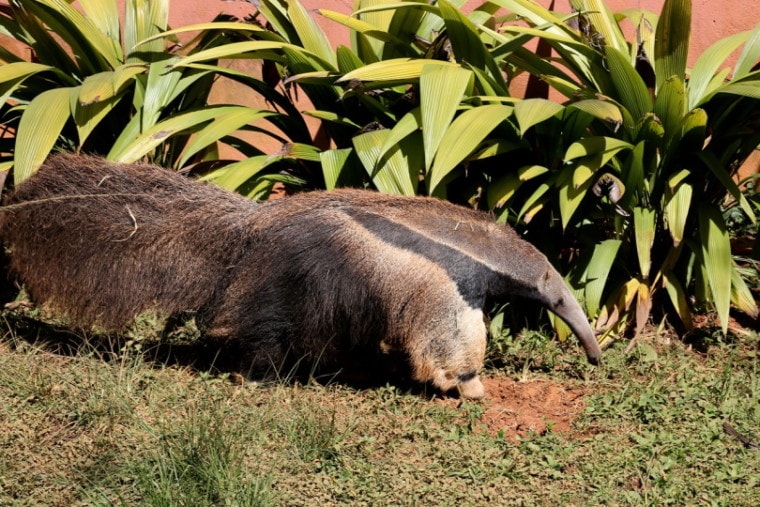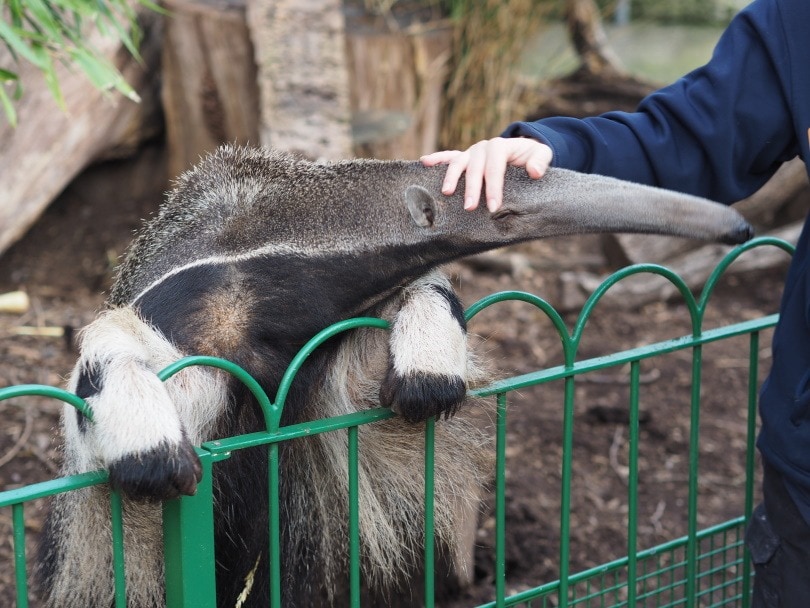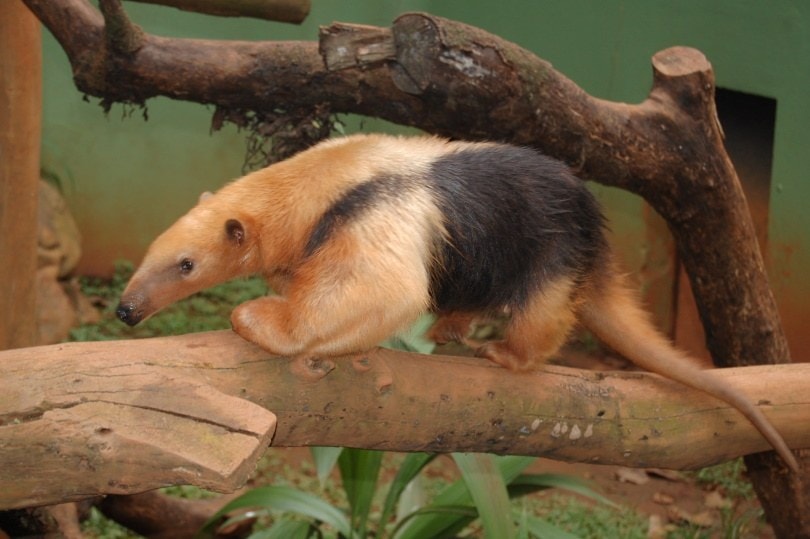
Anteaters aren’t the first on your list of possible pets, most likely. While many exotic animals have crossed the line into the mainstream, they are secure in their place on the fringes. Many individuals like the challenge that they offer. Of course, there is the cred of owning something that no one else has.
There are four species of this exotic animal. The Giant Anteater is the one you’ll most likely see in zoos but not on the pet circuit because of its conservation status.1 Ones that you may find sold as pets include the Silky Anteater, Southern Tamandua, and Northern Tamandua. The Tamanduas get up to 20 pounds (9 kg), whereas the Silky reaches about 1 pound (0.4 kg) as an adult.
The fact remains that anteaters aren’t on everyone’s radar for a reason, or lest we say several reasons. They are not the easiest pet to raise and getting one is only the first of several challenges that you’ll face when you decide to invite one into your home. Knowing the facts upfront is the best thing you can do to make sure that an anteater is a fit for your household and lifestyle—and budget!
Please note that in some jurisdictions owning an anteater might be against the law. In other places, keeping them as a pet might require a license. Always check local rules and regulations before adopting any exotic pet.
The content provided in this article is for informative purposes only. At Pet Keen, we do not recommend keeping anteaters as pets.
The 10 Things to Know Before Getting an Anteater
1. Anteaters Aren’t Cheap
Pets come with responsibilities and financial obligations. You may pay anywhere from $50–$2,000 for a anteater, and even more if it is from a championship lineage. On the other hand, you can expect to dish out $5,000 or more just to buy one. The best pets are offspring from tame parents that are hand-raised. That costs sellers time and money, which you have to figure in the price for this pet.

2. You May Need a Special Permit to Own One
Surprisingly, there are many exotic species that you can legally own, depending on where you live. Before you start shopping the want ads, we strongly urge you to check the state, county, and municipal laws and regulations in your area. Some places might outright ban them or require you to get a permit.
3. Anteaters Are (Usually) Nocturnal
Anteaters live in the dry, dense woodlands and ancient rainforests in South America. The tropical climate means that these animals are most active at night. They’ll sleep all night long and wake up ready for action. Their unique body shape belies the fact that anteaters are quite agile with their prehensile tails that allow them to enjoy their arboreal habitat.

4. Anteaters Aren’t Beginner Pets
Everything about owning an anteater is difficult, from finding one to setting up its living quarters to feeding it. They require a lot of attention, which means a significant time commitment on your part. Did we mention their claws? They use them to find food by ripping apart termite mounds. Your furniture is no challenge for a curious pet.
5. Then, There Is Their Diet
Their name says it all. You can buy ants. Fortunately, there are some other conventional substitutes that you can find online or at your local pet store. You can start by offering your anteater ground meat, commercial dry dog food, hard-boiled eggs, and other high-protein sources. You will need to blend it to a thick batter consistency so that your pet can eat it.

6. Veterinary Care Is an Issue
The second hardest challenge you’ll have is finding a veterinarian who will treat your anteater. You’ll likely have better luck in an urban area instead of a rural or suburban community. If you live near a veterinary college, you might inquire there. Another option is to contact the nearest zoo for a lead. However, don’t ignore this essential part of your pet’s care.
7. They Stink
Unfortunately, anteaters aren’t always pleasant to be around. Although they’re not related to skunks, they use a similar odoriferous defense when threatened. It’s also more potent. Adding to these woes is the fact that you probably won’t have luck housebreaking your pet. That’s a problem since these animals will mark their territories.

8. They Have Special Requirements for a Living Space
Anteaters need a lot of space, especially if their living quarters are the only place they play. It’ll need trees or playground equipment to replicate its habitat in the wild. Remember that it spends most of its time in the trees. Of course, they will forage on the ground and come to the food bowl when you feed them. Your anteater must have a temperature-controlled environment with plenty of hiding places.
9. Anteaters Are Susceptible to Respiratory Illnesses
Their susceptibility to respiratory conditions makes finding a veterinarian imperative. As tropical animals, anteaters don’t tolerate drafty conditions well. That’s why we emphasized the specialized living quarters. They can also develop dry skin. That’s a throwback to their rainforest environment, which would provide ample humidity.

10. Anteaters Are Wild Animals
When all is said and done, anteaters are wild animals. Humans domesticated dogs over 19,000 years ago. Your pet may just have a few generations with people under its belt. It’s worth noting that your anteater is still hard-wired to act instinctively, which may run afoul of other members in your household, including pets. After all, they aren’t social creatures.
Conclusion
While anteaters have a certain charm about them, they are not pets for everyone. They require a significant investment in time, money, space, and tolerance. If you have the inclination and willingness to get one, you’ll find it a rewarding experience, especially if you take the time to bond with your pet. You may even find that it enjoys walks around town, just like Salvador Dali’s anteaters did.
Find out more about potential exotic pets:
- Can You Keep a Skunk as a Pet? Here’s What You Need to Know!
- 17 Exotic Chicken Breeds (with Pictures)
- Do Otters Make Good Pets? What You Need To Know!
Featured Image Credit: joelfotos, Pixabay







